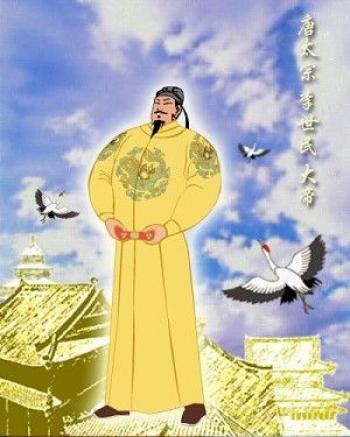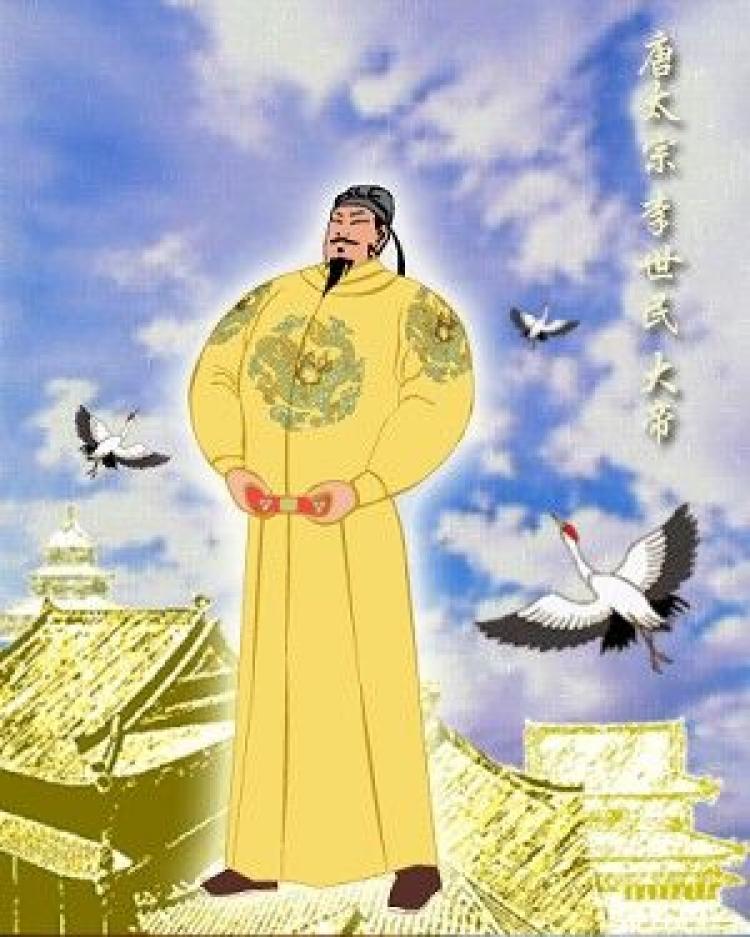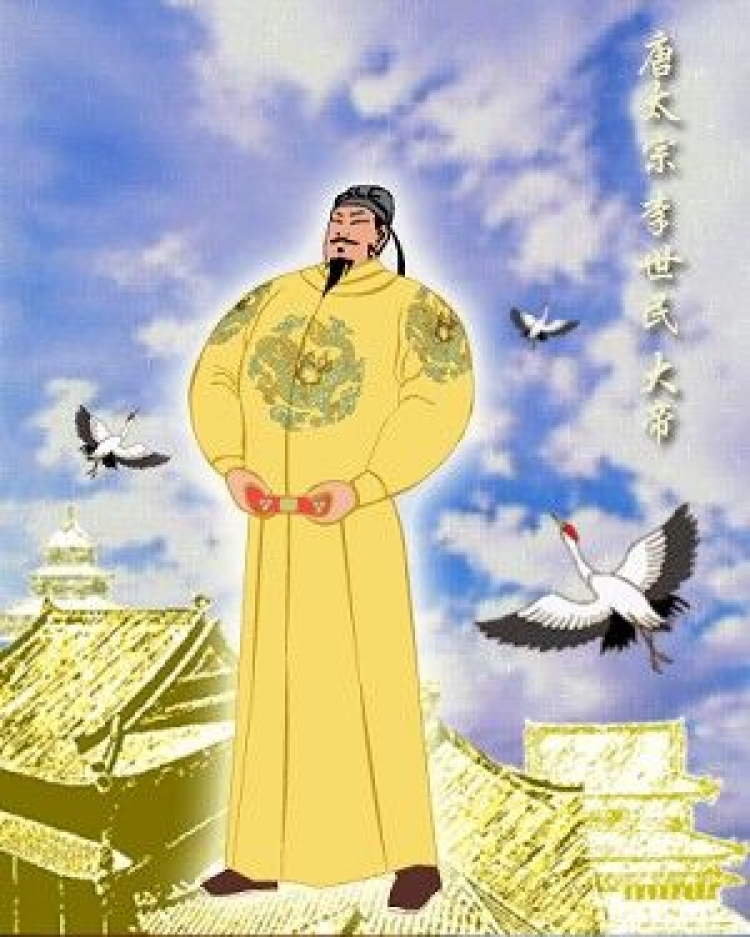One day Tang Taizong, the second emperor of the Tang Dynasty, who ruled from 626 to 649 A.D., arrived at Cuiwei Palace. He asked the Officials In Waiting, “Since ancient times, although emperors could conquer the central plains of China, they failed to get minority nationalities like the Rong or the Di to accede. My abilities are inferior to the emperors of ancient times, but I have been able to accomplish more than they did. I won’t disclose the reasons for now, but would like to ask you gentlemen to please give it to me straight.”
All the officials responded, “Your majesty’s virtue is as great as heaven and earth, and it would be difficult to cover it clearly in a few words.”
The Emperor went on and said, “It is not like that. There are five reasons why I am able to accomplish what I have accomplished. First, since ancient times, emperors usually were jealous of those whose abilities surpassed that of themselves; I, on the other hand, value other people’s strong points as I value my own.
Second, no one is perfect, so I often disregard people’s inadequacies but make use of their strengths.
Third, when others encountered talented and virtuous people, they wanted to own them, and they would abandon the incompetents, wishing they could push them into the abyss. When I see talents I respect them, and when I see incompetents, I have pity on them. This way, both the talented and the incompetent have their proper places.
Fourth, emperors by and large did not like people who were upright and straight shooters. They either did harm to them on the sly or castigated them openly. No dynasty was an exception. But since I took office, the imperial court has been jam-packed with upright officials, and nobody has been chastised.
Fifth, since ancient times, emperors have valued the central plains of China highly while discounting the Rong and Di nationalities, but only I have treated them equally. Therefore, they come to rely on me as they would on their parents. The above five reasons are why I can accomplish what I have accomplished today.”
Source: Zizhi Tongjian (Comprehensive Mirror for Aid in Government), volume 198, Tang Dynasty, record 14.







